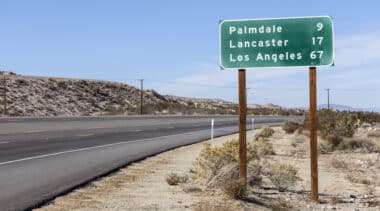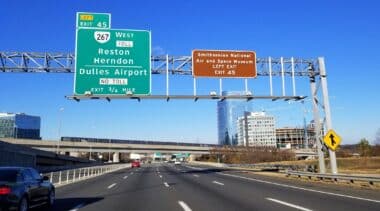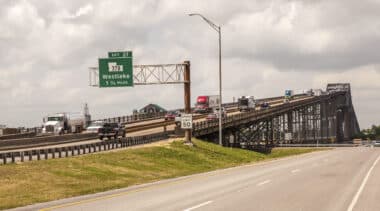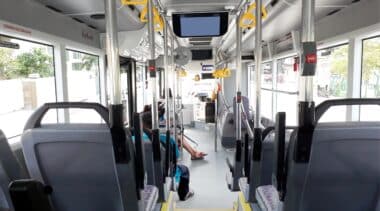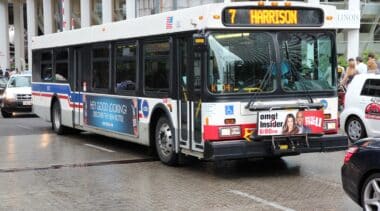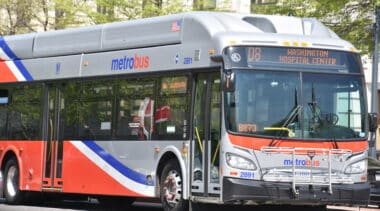Baruch Feigenbaum is Senior Managing Director of Transportation Policy at Reason Foundation.
Feigenbaum has a diverse background researching and implementing transportation issues including revenue and finance, public-private partnerships, highways, transit, high-speed rail, ports, intelligent transportation systems, land use, and local policymaking. Prior to joining Reason, Feigenbaum handled transportation issues on Capitol Hill for Rep. Lynn Westmoreland.
Feigenbaum is a member of the Transportation Research Board Bus Transit Systems and Intelligent Transportation Systems Committees. He is vice president of programming for the Transportation and Research Forum Washington Chapter, a reviewer for the Journal of the American Planning Association (JAPA), and a contributor to Planetizen. He has appeared on NBC Nightly News and CNBC. His work has been featured in the Washington Post, The Wall Street Journal and numerous other publications.
Feigenbaum earned his master's degree in Transportation Planning with a focus in engineering from the Georgia Institute of Technology.
-
Massachusetts Question 3 would authorize a union and collective bargaining for ride-hail drivers
The new labor framework would be overseen by state regulators, who would approve agreements between the parties.
-
Georgia Referendum A would raise personal property tax exemption
Georgia Referendum A would increase the personal property tax exemption from $7,500 to $20,000.
-
Georgia Amendment 2 would create the Georgia Tax Court
Georgia Amendment 2 would transition the role of the Georgia Tax Tribunal, which is housed in the executive branch, to the Georgia Tax Court, which would be housed in the judicial branch.
-
Georgia Amendment 1 would create a local homestead property tax exemption
Georgia Amendment 1 would allow counties to reduce the amount of property taxes that a homeowner pays on their primary residence.
-
California needs to quicken efforts to replace the gas tax
It’s time for California to be more forward-thinking in its road usage charge program by opening it up to more drivers and moving more quickly to a long-term replacement for gas taxes.
-
Annual Privatization Report 2024 — Surface Transportation
Of the top 10 worldwide surface transportation public-private partnerships that reached financial close in 2023, seven used availability payments.
-
Examining the safety and modernization efforts needed to protect bridges after the Key Bridge collapse
The Key Bridge, and most other bridges built then, lacked concrete structures commonly referred to as "dolphins," which act as bumpers to prevent boats from hitting critical bridge support structures.
-
Express bus service would serve Wisconsin better than proposed commuter rail line
Milwaukee’s bus ridership is 57 times higher than the most optimistic projected commuter rail numbers.
-
As California tries to meet climate goals, the state’s roads could get even worse
California policymakers should replace the gas tax with road charges dedicated to maintaining and repairing roads and bridges.
-
Billions in federal rail grants offer more political benefits than infrastructure improvements
From a taxpayer perspective, most rail projects receiving funding from these programs are seriously flawed.
-
Playing politics with a Virginia toll road
Infrastructure should be paid for by its users.
-
A public-private partnership is the best way to rebuild Louisiana’s Calcasieu Bridge
Financial risks are transferred from taxpayers to private investors, including responsibility for cost overruns, late completion, failure to meet traffic forecasts, and toll revenue shortfalls.
-
Florida counties need to take a new approach to transit services
Five actions that Sarasota and Manatee counties can take to improve transit.
-
Five actions transit agencies should take in the next two years
With transit ridership down, most large transit agencies will likely face a severe financial cliff in late 2024 when federal stimulus funds have been depleted.
-
Five actions transit agencies should take immediately
U.S. transit agencies need to make a series of changes that will reform their boards, contract out service, and better serve riders.
-
Washington state’s road user charge needs to replace gas tax, not promote political goals
Throughout the country, individual states and multistate coalitions are testing the viability of using per-mile charging to replace the state gas taxes drivers pay.
-
Tolling rural Interstate corridors
Using tolling to refinance the reconstruction of rural highways is the most realistic option to rebuild and expand these important roadways.
-
The redesign of DC’s bus system is needed, but it leaves many questions
The agency seems to be adding bus services designed for a previous era.









